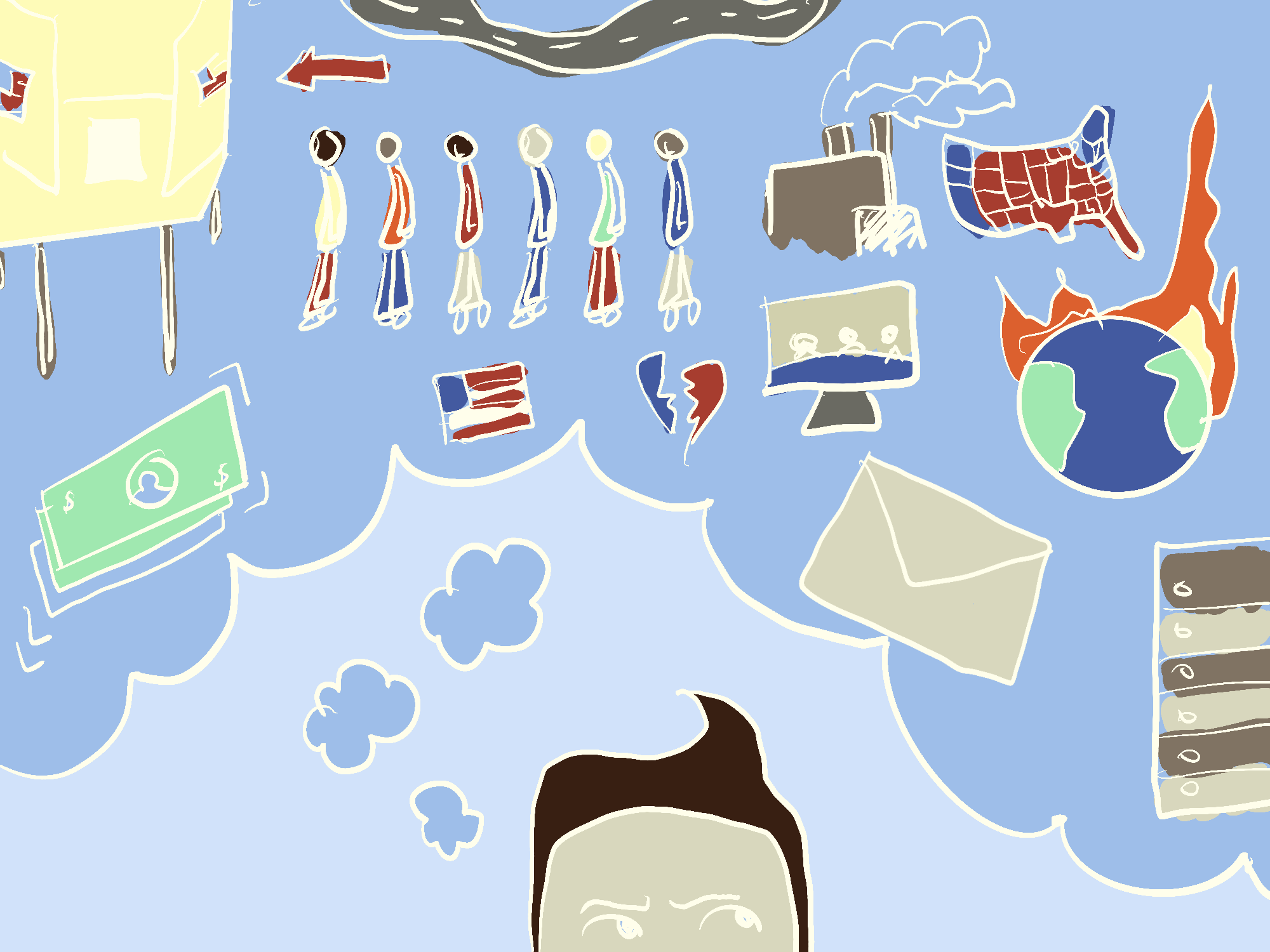For many Americans, presidential elections are immensely stress-inducing, but this year it’s gotten worse, according to a recent survey conducted by the American Psychological Association.

The 2024 election was framed by Vice President Kamala Harris’ campaign as a battle between democracy and facism. President-elect Donald Trump called Democrats “the enemy from within” and threatened retribution if re-elected. Because of this, many Americans suffer from election anxiety
This election caused 69% of adults to feel significant stress, according to the survey. Additionally, 74% of adults feared there would be violence following the election and 56% said this election would be the end of democracy.
John Christianson, the chair of the department of psychology and neuroscience at Boston College said these high levels of anxiety could stem from a lack of control over the outcome of the election.
“The election is one of these paradoxes where you have some control, and the outcome is that you get to go vote,” Christianson said. “But you don’t have a good connection between that action and what the actual outcome will be, and so that is a recipe for anxiety,.”
Christianson said that the uncertainty surrounding the election causes people to enter a “state of vigilance,” or a state of higher alertness that can cause people to be more easily startled and perceive their surroundings in a more threatening manner.
For Taylor Le, a junior in BU’s Metropolitan College, this election is the first time she’s voting, she said she’s felt nervous all week.
“It’s just the feeling of the unknown, the general feeling of the unknown and not knowing what’s, the trajectory of our country,” she said.
Conversely, the lack of control, along with heavy exposure to political messaging, can also cause disengagement from politics and desensitization in a phenomenon known as “habituation.”
“We get used to it, and we stop having that knee jerk reaction. We stop generating a stress response,” Christianson said. “It does seem like politicians, the media tend to deliver messages that are at the most extreme because… that’s what continues to get reactions.”
However, Christianson said it’s possible that many people’s political anxiety will be reduced after the election.
“Maybe on Wednesday morning, people wake up and go, ‘ah, it’s over,’” he said. “There’s a sense of relief that tends to be associated with the executive parts of the brain… and the systems that are helping maintain our arousal and vigilance get suppressed.”
Yet, due to the attempted insurrection on January 6, 2021, Christianson said some people won’t be able to relax until the next president is sworn in.
“It’s natural for somebody to be worried that that could happen again,” he said.
Neha Gondal, an associate professor of sociology at Boston University, said she anticipates friction in relationships between people with different political views.
“The 2016 Election did show us that relationships that were politically different were more likely to be dropped after the 2016 Election,” she said.
An example of these tensions was the many women who voted for Harris without telling their loved ones.
“One way in which women are managing this kind of stress is by keeping [their Democratic vote] a secret, by not divulging to their husbands and other families and friends and church members,” she said.
In a recent Fox News broadcast, host Jesse Watters said that his wife voting for Harris “violates the sanctity of our marriage” and “that’s the same thing as having an affair.”
However, Gondal said she believes in the resiliency of most familial relationships.
“We put up with family in a variety of different ways, and I think those guys will endure for the most part, despite this election,” she said.
Alexia Oliveira, a freshman at BU who isn’t old enough to vote, said she has been avoiding news coverage regarding the election to protect her “mental health”
“It’s hard to take [the election] seriously if the [running] politicians don’t even take it seriously. It’s all a big joke, but it applies to every single one of us,” she said.


























































































































